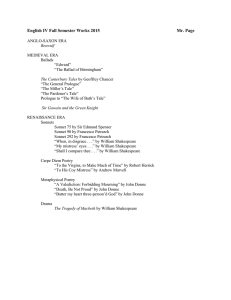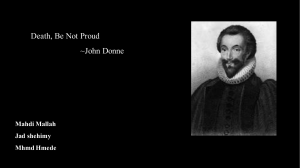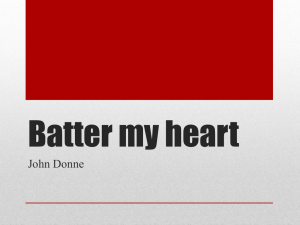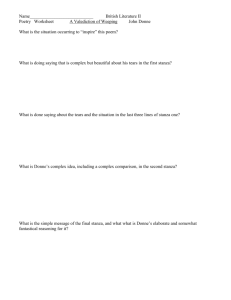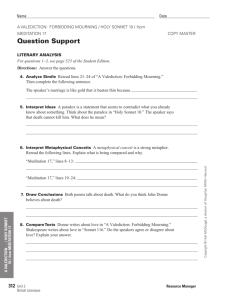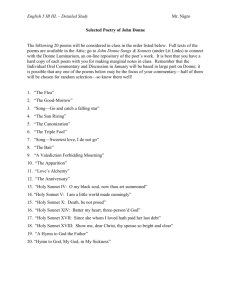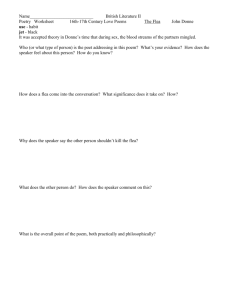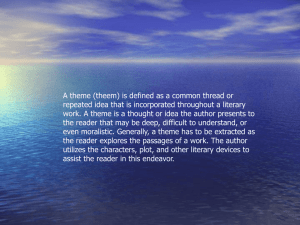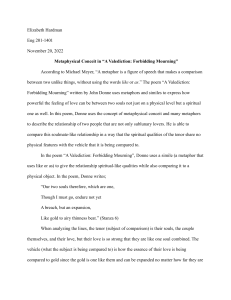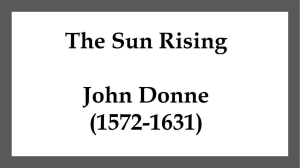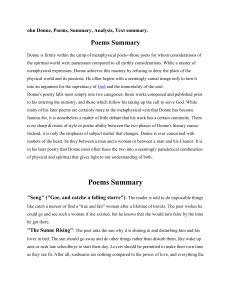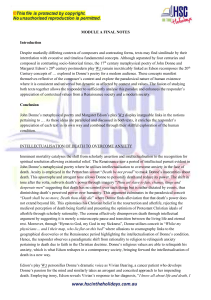Topics for discussion:
advertisement
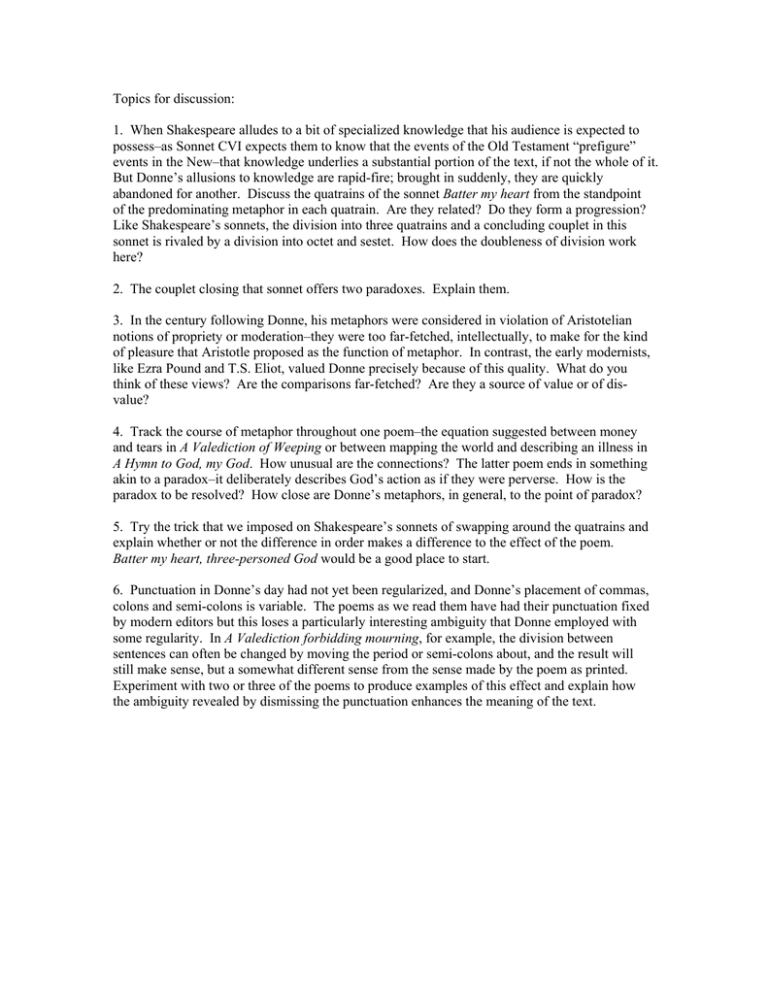
Topics for discussion: 1. When Shakespeare alludes to a bit of specialized knowledge that his audience is expected to possess–as Sonnet CVI expects them to know that the events of the Old Testament “prefigure” events in the New–that knowledge underlies a substantial portion of the text, if not the whole of it. But Donne’s allusions to knowledge are rapid-fire; brought in suddenly, they are quickly abandoned for another. Discuss the quatrains of the sonnet Batter my heart from the standpoint of the predominating metaphor in each quatrain. Are they related? Do they form a progression? Like Shakespeare’s sonnets, the division into three quatrains and a concluding couplet in this sonnet is rivaled by a division into octet and sestet. How does the doubleness of division work here? 2. The couplet closing that sonnet offers two paradoxes. Explain them. 3. In the century following Donne, his metaphors were considered in violation of Aristotelian notions of propriety or moderation–they were too far-fetched, intellectually, to make for the kind of pleasure that Aristotle proposed as the function of metaphor. In contrast, the early modernists, like Ezra Pound and T.S. Eliot, valued Donne precisely because of this quality. What do you think of these views? Are the comparisons far-fetched? Are they a source of value or of disvalue? 4. Track the course of metaphor throughout one poem–the equation suggested between money and tears in A Valediction of Weeping or between mapping the world and describing an illness in A Hymn to God, my God. How unusual are the connections? The latter poem ends in something akin to a paradox–it deliberately describes God’s action as if they were perverse. How is the paradox to be resolved? How close are Donne’s metaphors, in general, to the point of paradox? 5. Try the trick that we imposed on Shakespeare’s sonnets of swapping around the quatrains and explain whether or not the difference in order makes a difference to the effect of the poem. Batter my heart, three-personed God would be a good place to start. 6. Punctuation in Donne’s day had not yet been regularized, and Donne’s placement of commas, colons and semi-colons is variable. The poems as we read them have had their punctuation fixed by modern editors but this loses a particularly interesting ambiguity that Donne employed with some regularity. In A Valediction forbidding mourning, for example, the division between sentences can often be changed by moving the period or semi-colons about, and the result will still make sense, but a somewhat different sense from the sense made by the poem as printed. Experiment with two or three of the poems to produce examples of this effect and explain how the ambiguity revealed by dismissing the punctuation enhances the meaning of the text.
